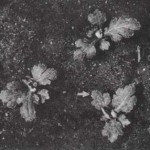 Thus far, one of the best things that my dad’s book has given me is my grandfather.
Thus far, one of the best things that my dad’s book has given me is my grandfather.
Although there are pictures of me with my dad’s mother, I never got to meet my grandfather; he died before I was born. And my maternal grandfather actually died the year I was born, a few months before my birth in December. So I never had a biological grandfather, growing up.
But my grandfather, my dad’s father, is all over the manuscript.
He was a dancer. There’s an entire chapter devoted to a folk dance that my grandfather used to perform, and even performed in camp, a fisherman’s dance. As a granddaughter, it’s lovely to know that he was a dancer; as an editor, I am not sure why the chapter is there. But that’s a conversation I’ll have with the manuscript another time.
He was a rabble-rouser, a speech-maker. Contrary to what I used to think about our family history, my dad and his siblings were not sent to Tule Lake initially because of my grandfather’s “troublemaker” behavior. While at Tule Lake, my grandfather made a series of fiery speeches against the military recruitment policies in camp. For that series of speeches, he was taken away to New Mexico. I say this with pride.
He cared about his community. Upon his return from New Mexico, when asked what he would like to do, he answered, “I would like to serve the people of this camp.”
He was a man with a sense of history. When he learned that World War II had ended, he sighed, and said “From this day on, I will become an American Indian.” How did he know what it was to be an American Indian, to associate his own experience of dispossession with theirs?
In other words, the manuscript is shot through with a young boy’s hero-worship of his father. (I realize that’s something I’ll need to think about for my own book.) It makes a certain amount of sense: my dad was writing about the time from when he was 10 to when he was 14. Not long after that, I believe, he was no longer living at home, working in various jobs. (I’ll have to find out more about this gap.) For all I know at this moment, actually, my father was writing about and through the loss of his own father.
In my dad’s buy ventolin with no prescription manuscript, the loss is so palpable that even after my grandfather returns to camp from imprisonment in New Mexico, my dad thinks hard about what his father’s absence meant. “What is a family without a father?” he asks himself.
My father’s response to his own question stuns me: “Not much of anything.”
And here I can begin to write back to my father. After age 10, I grew up without a father. And while we missed him terribly—what he said about a father’s absence? It’s just not true. Or at least, it’s not true for everyone. It wasn’t true for us, for my sister and my mother and I, and our larger extended family (who never abandoned us, even though their brother had died). For my sister and me, the youngest of our generation of 13 cousins, it has been a family existence rich with love.
Before opening the manuscript envelope, there were so many questions that I wanted answered. I think that I went to the manuscript not just to find my father, but to find fathering: to find advice, support, strength. How does one endure terrible, difficult times?
And I have to confess that in this respect, the manuscript feels incomplete. Why? My friend B put it best, I think. I told her that I’d looked for a father in the manuscript, but didn’t find him, and she nodded with understanding. “You went to find your father—but what you found was another kid.”
So it’s unexpected and wondrous, painful and lovely, that while the fathering I wanted wasn’t in my dad’s book, the grandfathering was. “You must have the capacities to bounce back,” he said to my father, “no matter what the adversities are.”
I like to think that my grandfather learned that lesson from the gardens that they grew in camp. I didn’t know that families could grow anything in Tule Lake. But my father describes growing flowers and vegetables in his manuscript. “The flowers brightened the area,” my father says, “and the sense of desolation was removed.” Few people can talk about the power of endurance and regeneration like farmers can.
You see, all this time I thought that I love chrysanthemums because my father loved them. I didn’t know he inherited this love from my grandfather.
They grew chrysanthemums in camp, too.
